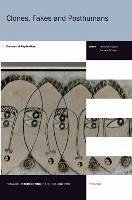Clones, Fakes and Posthumans: Cultures of replication explores cloning and related phenomena that inform each other, like twins, fakes, replica, or homogeneities, through a cultural prism. What could it mean to think of a cloning mentality? Could it be that a "cloning culture" has made biotechnological cloning desirable in the first place, and vice versa that biotechnological cloning then enforces technologies of social and cultural cloning? What does it mean to say that a culture replicates? If biotechnological cloning has to do with choice and repetitive reproduction of selected characteristics, how are those kinds of desires expressed socially, politically and culturally? Lifting the issue of cloning above the biotechnological domain, we problematize the cultural context, including modernity's readiness to imitate and manipulate nature, and the skewed privileging of desirable socialities as a basis for exclusive replication. We also explore possible relations between a cloning mentality and a consumer society that fosters a brand-name mentality. The construction and (coercive) implementation of copy-prone technological and symbolic items are at the very heart of the consumer society and its modes of mass production as they have emerged from and seek to articulate, define, and refine modernity and modernization.
Hinweis: Dieser Artikel kann nur an eine deutsche Lieferadresse ausgeliefert werden.
Hinweis: Dieser Artikel kann nur an eine deutsche Lieferadresse ausgeliefert werden.








